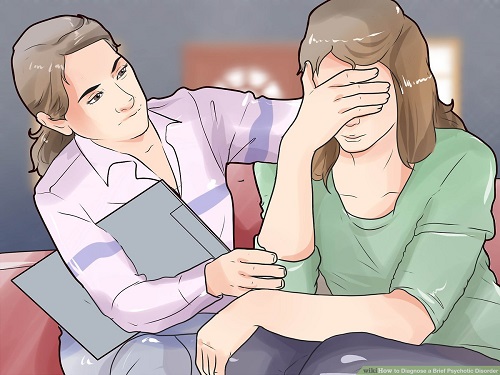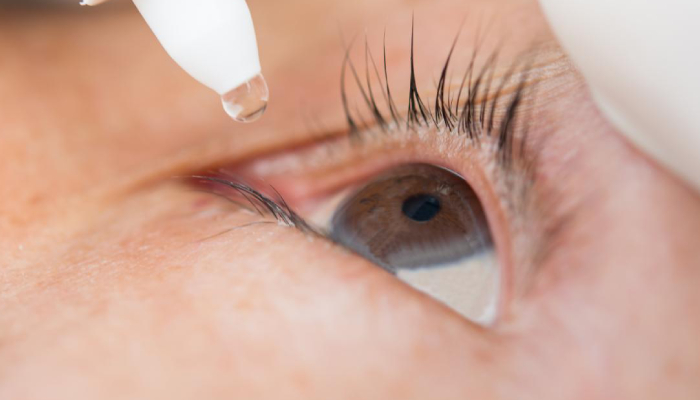All You Need To Know About Psychotic Disorders

How To Tackle Stress And Anxiety Without Medicines
April 16, 2020
Medical Treatments For ENT Diseases
April 20, 2020Understanding Psychotic Disorders
Psychotic disorders or Psychosis are quite complex to understand. Unless of course, you are a doctor. But generally speaking, psychotic disorders are a group of psychological illnesses. They are characterized by
- Difficulty in thinking clearly
- Difficulty in making rational judgments and decisions
- Poor response to communication
- Poor response to emotions
- Lack of proper behaviour
- Unwillingness to understand reality.
What causes psychotic disorders?
Psychotic disorders are often the result of severe mental or physical illnesses. Although reasons are still unclear, researchers believe that drug abuse, medication, societal and environmental factors, lack of sleep, etc can be the reasons behind psychotic disorders.
More serious ailments like Bipolar disorder, stroke, infections and tumors in the brain are also some of the culprits. Studies have also revealed that degenerative diseases like Alzhiemer’s. Huntington’s, Parkinson’s, epilepsy and chromosomal disorders can cause psychotic disorders. A temporary period of psychosis can also be the outcome of dealing with personal trauma like the loss of a loved one.
Read More About : Heart Diseases: Diagnosis And Treatments Of Heart Diseases
What are the symptoms of psychotic disorders?
Whatever the reason, psychotic disorders manifest themselves in various changes of behaviour. The person starts to become detached from family and friends. Lack of interest in doing anything, loss of performance at work or education, loss of self-esteem and a profound detachment with reality are some of the underlying symptoms.
Strange or dangerous behaviour, incoherent speech, being unusually slow, mood swings such as depression or maniacal behaviour, etc are some of the other symptoms associated with psychotic disorders.
Knowing The Types Of Psychotic Disorders
The different types of Psychosis are termed by their symptoms and unique characterizations.

1.Schizophrenia
As the most common psychotic disorder, Schizophrenia is characterized by hallucinations and delusions. A marked change in behaviour with social detachment and decline of normal functioning in school or work are symptoms of Schizophrenia.
2.Schizoaffective Disorder
Bipolar disorder, depression and mood disorders are the symptoms of Schizoaffective disorder.
3.Delusional Disorder
A delusional disorder is when the person has a false belief with a real-life situation. They can believe that they are being plotted against, or having a deadly disease or being followed by someone, which are mostly untrue. Delusional disorders do not last long and can be easily treated.
4.Brief Psychotic Disorder
As the name suggests, a brief psychotic disorder occurs when the person undergoes severe mental trauma, often in response to a very stressful event in their lives. Recovery is quick and often involves a lot of counseling sessions.
5.Substance-induced Psychotic disorder
This disorder is often induced by withdrawal symptoms from a prolonged usage of powerful drugs like hallucinogens, cocaine, marijuana and meth.
6.Shared psychotic disorder
When two persons in a relationship share or adopt the same delusions, it is called a shared psychotic disorder. Most often, treatment is given for both the persons at the same time.
Other psychotic disorders that are common are Paraphrenia, Schizophreniform disorder and psychotic disorders caused by medical conditions.

How Are Psychotic Disorders Diagnosed?
A doctor can diagnose Psychosis by various means and methods. One common method is the Psychiatric Evaluation. What exactly is it?
A psychiatric evaluation involves a series of tests that are designed to evaluate a person’s cognitive abilities, orientation, attention span, memory, language skills, problem-solving abilities and judgmental skills.
A range of medical tests, X-rays, MRI scans etc are taken to evaluate the functioning of the brain and other neurological processes.
A thorough physical examination and analysis of the person’s medical history is also important. Analysis of genetic family traits is an important factor because psychosis can also run in the family.
Once the doctor has made his diagnoses, he will refer the patient to a psychiatrist who will evaluate them further before drawing a conclusion and deciding the medical treatments for psychotic disorders.
How is Psychosis treated and Can It Be Prevented?
Treatment of Psychosis
Treatment is based on the severity and duration of the condition. Mild and Brief Psychotic disorders are mostly cured with Psychotherapy. Severe and destructive forms of psychosis need medication and psychotherapy over a period of time.
What is Psychotherapy? Psychotherapy is counseling given to an individual, a group or to a family. Psychotherapy does not require the patient to stay in the hospital unless he/she is in danger of hurting themselves or others.
What are the medical treatments for psychotic disorders? Medications that are used to treat psychosis are termed Antipsychotics. Although they do not provide a cure, they are effective in managing symptoms like delusions and hallucinations.
Can Psychosis be prevented?
The answer is Yes and No. Substance-induced Psychotic disorders can be prevented by quitting or totally refraining from drugs. But brief psychotic disorders cannot be prevented if the personal trauma is too much for the person to handle. So is the same with the person having a family history of schizophrenia or bipolar disorder.
However, the sooner the person reaches out for medical help, the faster and better are the chances of them recovering and leading a normal, happy life.




